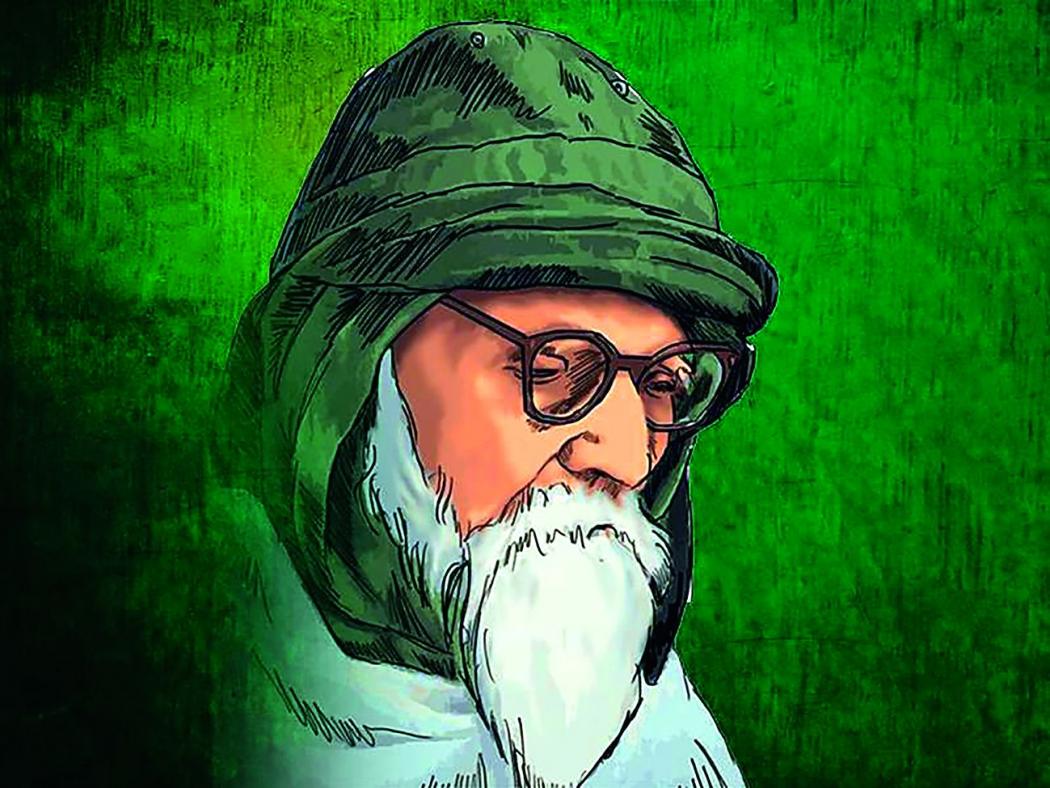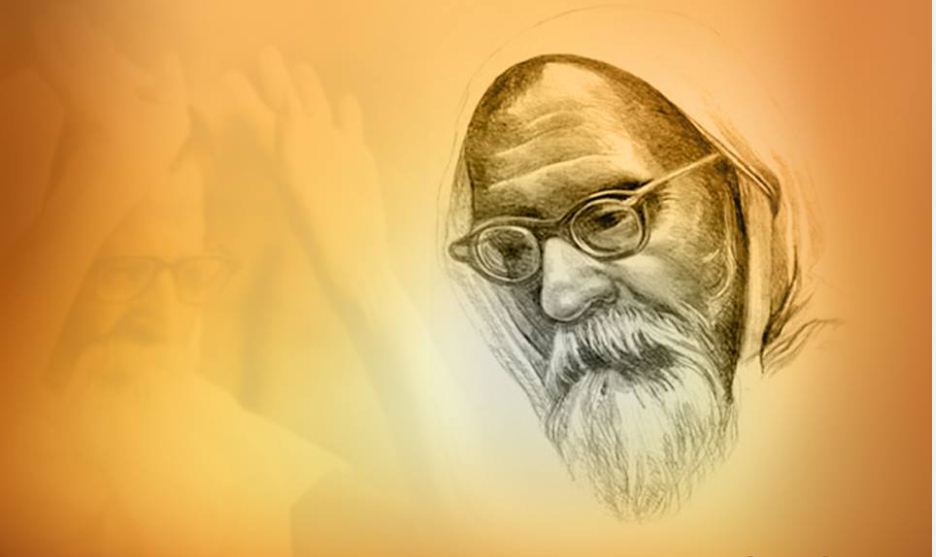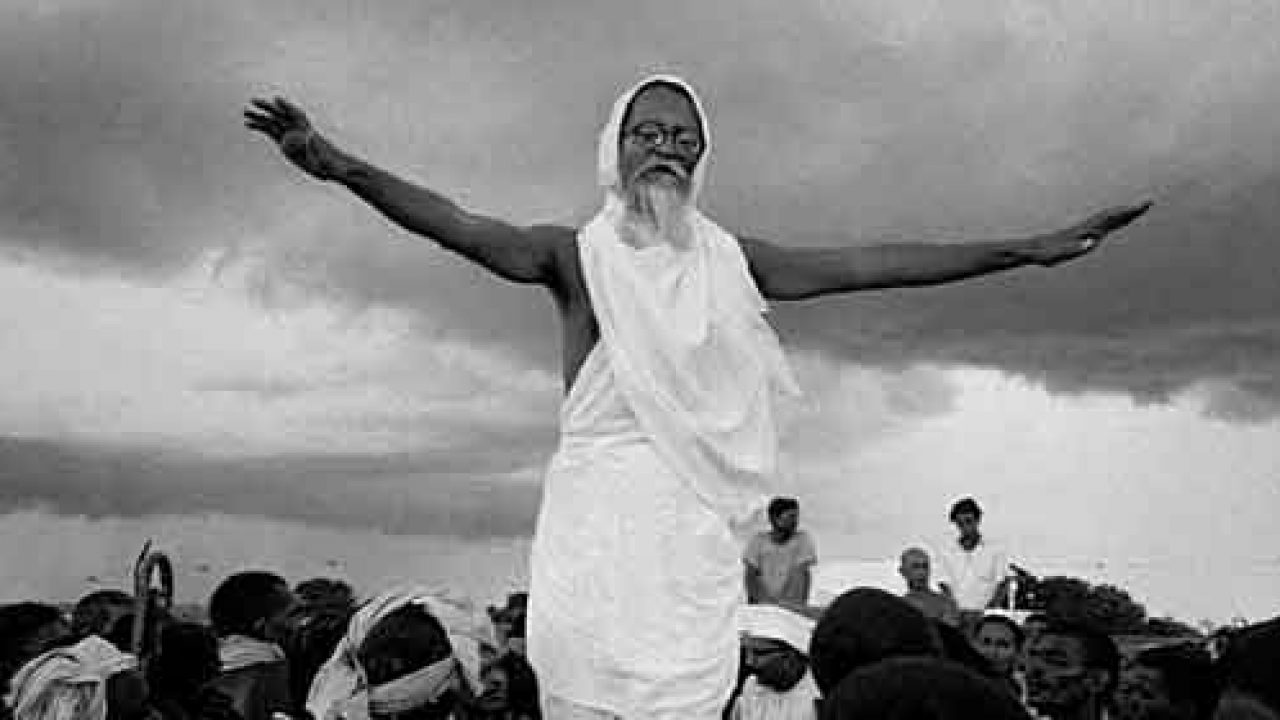126th Birth Anniversary of Acharya Vinoba Bhave - September 11, 2020

The divine saint, Vinoba Bhave, was born on September 11, 1895. His divine nature, humanistic thinking, upliftment of all, blissful efforts and convey the message of glory to the earth. This great man had given live examples of 'Bhoodan'( gift of land) , surrender of bandits and non-violent solutions to global problems by the ideas of Jai- Jagat. He was a lighthouse for us, a pillar of hope and hope for nationality, morality and non-violent life, and for the people living in the suffering and absence, the light used to go with them. He was an outstanding seer of saints, a freedom fighter of India, a social worker, a distinguished iconoclast, a great thinker and a famous Gandhian leader. His original name was Vinayak Narhari Bhave. He was well-known in India as the pioneer of 'Bhoodan' and 'Sarvodaya' movements. He was a public leader inspired by the Bhagavad Gita, was a preacher, a great sage, whose every message has become a lesson to all. He was a passionate person. In his sermons, he brought the essence of Geeta( Bhagwad Geeta) to the people in very simple words so that their spiritual rise, light and truth could be established in the dark.

Vinoba Bhave founded Sarvodaya Samaj. It was the All India Association of Creative Workers. Its aim was to bring social change in the country in a non-violent manner. In this program, he traveled from village to village like a pedestrian and requested people to donate land, so that the life could be improved by giving it to some landless people. His motive was as effective as it was amazed. In this sacred work, the landlords also came forward to give land openly to the poor. It is a unique non-violent revolution of kindness in the world. He followed Gandhian philosophy. He used ideas such as creative works and trusteeship. By 1955, the land movement took a new form. It was identified as 'Gramdan'. It meant 'the whole land of Gopal'(Almighty). His public leadership ability is reflected in the incident that prompted the Chambal bandits to surrender and on May 19, 1960, 11 chiefs of the dacoit gangs surreptitiously kept their arms at his feet. Today, Naxalism, which has dominated the country, can be reinforced in the form of non-violence like Vinoba Bhave and J.P. Narayan. Only hurt at the root of terrorism and Naxalism is like just spraying medicine on but will not provide a permanent solution.
Vinoba Bhave is considered as the national teacher of India and the spiritual successor of Mahatma Gandhi. Even today some people say this. But this is a one-sided and one-sided analysis of his character. He was the master of independent thinking and humanitarian programs, far ahead of Gandhi's 'spiritual successor'. The main thing is that Gandhi's sharp halo could not be evaluated independently of his personality. We can call them 'Akshaya Kosh' of knowledge. Vinoba had attained spiritual height even before Gandhi came to the close. Sant Gyaneshwar and Saint Tukaram were his ideals. Even after coming to the ashram, he used to take regular time for study and meditation. In 'Bhoodan Yagna'; Vinobaji preached twice daily and used to say new things in each of his discourses. One day he was asked, "Baba, you have been giving speeches for so many days, but there is something new in every speech of yours. How is this possible? "Vinobaji said," I walk on foot. It touches the earth and connects a close connection with nature. There is new energy in the mind. From that, new things are understood. "There was a lot of truth in what Binobaji said. I myself realized that when I walked for many years on foot with Acharya Tulsi, the pioneer of the Anuvrat movement, the sensations I got, the knowledge I got, was amazing. The reason for this was that the closed doors of the human mind open at a walking pace and the fresh air of the atmosphere comes inside.

Vinoba Bhave worked a lot with Gandhiji in the freedom struggle of the country. His spiritual consciousness was related to society and the individual. For this reason, despite his saintly nature, he also had political activism. He called upon the people of the country to volunteer to fight social injustice and religious inequality. His mother Rukmini Devi was deeply influenced in his spiritual development. He was chosen by Mahatma Gandhi as the first 'Satyagrahi' and Gandhiji also joined him in the 'Quit India' movement. This became his permanent headquarters after his arrival at the Pawnar Ashram. After India became independent, Vinoba Bhave started the social reform movement.
'Bhoodan' and 'Sarvodaya' movements were very effective in this sequence. He believed that non-violent and moral revolution is needed for the complete transformation of Indian society. For this, he considered Acharya Tulsi and his 'Anuvrat' movement useful and gave him his full support.Vinoba Bhave was compassionate; his compassion filled the entire humanity. His leadership rose high because he shared his values, love, faith and harmony among all. Everyone was considered a participant in his achievements. Sharing the pain of his colleagues and workers was his top priority. An example of this is my family - my father Mr. Ramswaroop Garg and mother Mrs. Satyabhama Garg. In 1959, when he came to Ajmer while doing a padyatra, he came to know that one of his workers, Satyabhama Garg, is suffering from cancer and is struggling between life and death, then he went to meet him in the narrow streets of Imli Mohalla, climbed to the third floor and gave his blessings to her; possibly it can only done by a personality like Vinoba.
In 1970 he announced that he would now permanently reside only at Pawanar. From 25 December 1974, he observed a one-year vow of silence. Being an ardent follower of Mahatma Gandhi, he was an undisputed supporter of the Congress Party. In 1975, when the Prime Minister Indira Gandhi imposed an emergency, bypassing democracy and the Constitution, Vinobaji supported Indira Gandhi and the Congress. That time was Vinoba Bhave's vow of silence, even when he wrote his message on a slate, 'Emergency is festival of Discipline' and this message laid him in controversy and his spirituality and public concern were seen with suspicion.Vinoba Bhave fell seriously ill in November 1982 and decided to sacrifice his willful death by sacrificing food and medicine as an authorization of Jainism. He died on 15 November 1982. Really! He became enlightened while doing his auspicious karma. But the question before us is how do we measure that sky, how to tie that sea, how many rainy drops are counted? Vinoba's creative and society-building achievements are so much that in his assessment every formula of mathematics falls short. His achievements and aura were at infinity.
Vinoba Bhave received the first international Ramon Magsaysay award for community leadership. He was posthumously awarded the Bharat Ratna in 1983.In order to remember the 126th birth anniversary of Vinoba Bhaveji, we should take a pledge to make all Vasudha (World) a family according to 'Jai Jagat'. The final 'Jai Jagat' of human civilization started from the caves i.e. the formation of the global democratic system (world parliament) and Vasudhaiva Kutumbakam-the whole world will be a true tribute to Vinobaji's successful step towards the family destination. We should not create a mood and environment to weigh Vinoba with physical miracles, but adopt his life-ideals in life because each lesson of him is like worshiping themselves as 'Aarti' in temple, the 'Azaan' of the mosque and Guruvani in Gurudwara. If the present political leadership takes inspiration from them, the dream of an ideal and balanced society will take shape.
 Lalit Garg
Lalit Garg